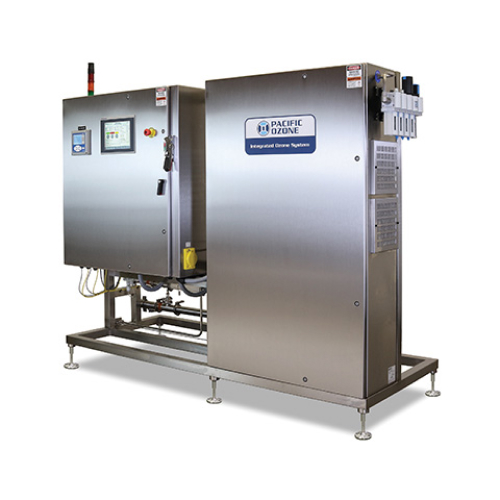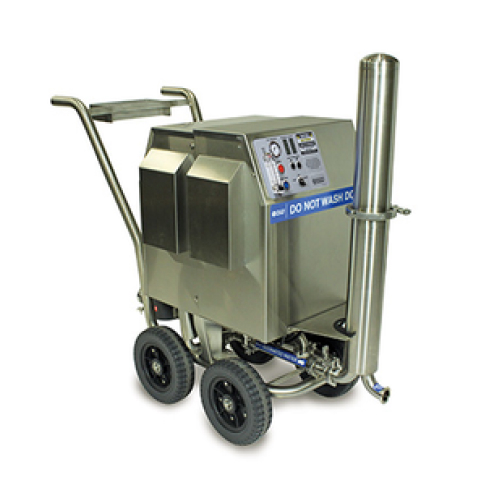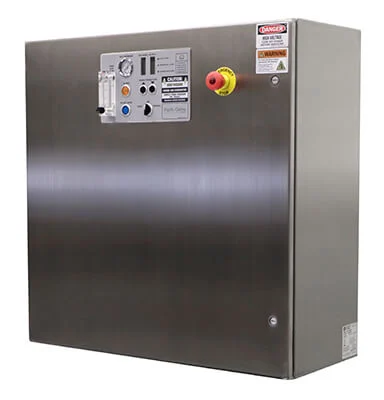Recent Posts
Aquaculture FAQs. Recirculating Aquaculture Systems (RAS)

Complete aquaculture water treatment solutions using advanced filtration, disinfection and analysis technologies.
Recirculating Aquaculture Systems (RAS) are advanced systems used in aquaculture to efficiently raise fish and other aquatic organisms by continuously recycling and treating water. Here are some frequently asked questions (FAQs) about RAS aquaculture:
- What is a Recirculating Aquaculture System (RAS)? A RAS is a closed-loop aquaculture system that recirculates and treats water, allowing for the efficient cultivation of fish and aquatic organisms in a controlled environment.
- How does a RAS work? In a RAS, water from the fish tanks is continuously circulated through a filtration system to remove waste products, and then it is treated to maintain water quality parameters such as oxygen levels and temperature before being returned to the tanks.
- What are the advantages of RAS compared to traditional aquaculture systems? RAS offers advantages like higher stocking densities, better water quality control, reduced environmental impact, and the potential for year-round production, regardless of location or climate.
- What types of fish are commonly raised in RAS systems? Various species of fish are raised in RAS, including tilapia, trout, salmon, catfish, and sturgeon. The choice of species depends on market demand and environmental conditions.
- How is water quality maintained in a RAS? Water quality is maintained through mechanical and biological filtration to remove solid waste and nitrifying bacteria that convert ammonia into nitrate. Additional treatments may include oxygenation and pH control.
- Is RAS environmentally friendly? RAS systems are often considered more environmentally friendly than traditional aquaculture because they use water more efficiently, reduce nutrient pollution, and minimize the risk of disease transfer to wild populations.
- What are the energy requirements of a RAS system? RAS systems do require energy to operate pumps, filtration, and environmental control systems. However, energy-efficient designs and renewable energy sources can be used to reduce the environmental footprint.
- Are RAS systems expensive to set up and maintain? The initial setup costs for a RAS can be high due to the need for specialized equipment and infrastructure. However, operating costs can be lower over time due to reduced water usage and improved efficiency.
- Can RAS be used for organic aquaculture production? Yes, RAS can be designed and operated to meet organic aquaculture standards by using organic feed and minimizing the use of synthetic chemicals.
- Is RAS suitable for saltwater or marine species production? Yes, RAS systems can be adapted for the production of saltwater or marine species like shrimp, sea bass, and barramundi.
- What are some of the challenges in RAS aquaculture? Challenges include system design and operation complexity, biosecurity to prevent disease outbreaks, and the management of waste generated by the system.
- Is RAS aquaculture a sustainable method of fish production? RAS can be a sustainable method when managed properly. Sustainable practices include responsible sourcing of feed, efficient water use, and waste management.
- Can RAS systems be used for research or educational purposes? Yes, RAS systems are often used in research and educational institutions to study fish behavior, water quality, and aquaculture management techniques.
- Are there any regulations or permits required for RAS aquaculture? Depending on your location and the species you intend to raise, you may need permits and approvals from local environmental agencies and fisheries authorities.
- What solutions does AQUAANALYTIC offer for aquaculture? Our engineers have their own comprehensive approach in water filtration and disinfection for fish farms. Using UV and Ozone, disinfection analyzers and self-flushing filters from the industry leader in water treatment, Evoqua, will take your business to a higher level of quality.
RAS aquaculture is a rapidly evolving field, and the specific details of a system can vary widely depending on the species being raised and the goals of the operation. Consulting with experts in RAS design and operation is advisable for those interested in setting up a RAS facility.
Filtration & Disinfection for Aquaculture
AUTOMATIC Self Cleaning Screen Filters VAF V Series Evoqua
Portable Ozone Systems – The PC Series
Sanitizing & Disinfecting with the Ozone PC3 Cart




